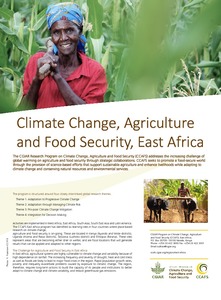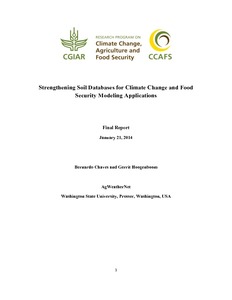Climate change, agriculture, food security, East Africa
In East Africa, agricultural systems are highly vulnerable to climate change and variability because of high dependence on rainfall. The increasing frequency and severity of drought, heat and cold stress as well as floods are likely to lead to major food crises in the region. Rapid population growth rates, poverty and inequality exacerbate problems caused by exposure to climatic change. The region, therefore, requires long-term actions to build the capacity of its people and institutions to better adapt to climate change and climate variability, and reduce greenhouse gas emissions.






